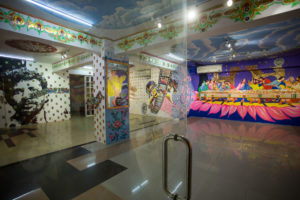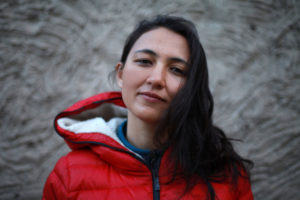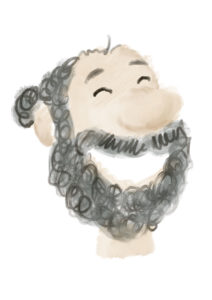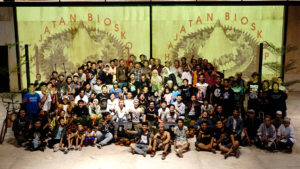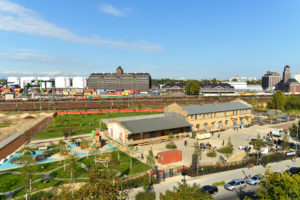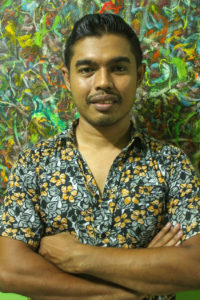Amol K Patil is a conceptual and performance artist. His ongoing work of excavations and investigations aims to recapture the pulsating, vibrating movements and sound of “chawl” architecture. Chawls are five-story structures specific to Mumbai that were built in the early 1900s and provided social housing for mill and factory workers.
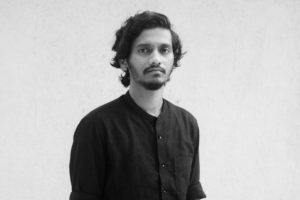
Amol K Patil, Mumbai, 2021, photo: Shubham Kamble
Initially a visual artist, Patil later became interested in the intersection of performance art, kinetic art, and video installation. After discovering his affinity for performance art, he grappled to understand his father’s work as a theater activist. He encountered an old dictaphone tape recorder, a walkman, and cassettes filled with sounds and immigrant dialects that his father recorded for his avant-garde scripts on the dilemma of living in the city as a migrant. He also found songs handwritten by his poet grandfather. The songs are rooted in a protest tradition called powada, that dates back to the seventeenth century. Much like rappers, the interpreters furiously spit out words, often criticizing the caste system.
For his contribution to documenta fifteen, Patil invites collaboration across time. Young Powada writers and musicians, the Yalgaar Sanskrutik Manch, weave their lyrics with his grandfather’s. “It’s a way to think the now, combining what’s harsh and polite, sweet and silent, pitching a criticism of land politics and social separation,” Patil says.
He draws the visitors into journeys within the city from his childhood. His father’s friend, Anil Tuebhekar, moved on skates, a broom in hand and a radio at his waist, sweeping the street, every day. “He cleaned the city, but knew he wasn’t welcome into the bus or in the hotel for a drink of water. Shutting the world out with music was his individual protest.”
In Sweep Walkers (2022), then, performers move through exhibition spaces on roller skates with cleaning brushes, radios playing the composed songs. At Hübner, with immersive sculptures of map-lines of the journeys of his grandfather and many others, from village to city, a radio plays, its waves permeating the underground.
Patil’s work has been shown at Yokohama Triennale (2020); Goethe-Institut/Max Mueller Bhavan, Mumbai and New Delhi (2019); The Showroom, London (2018); Tensta konsthall, Stockholm (2017); Centre Pompidou, Paris (2017); Pune Biennale Habit-Co-Habit (2017); New Galerie, Paris (2016); Dakar Biennale (2016); Myymälä2, Helsinki (2015); Japan Foundation, Delhi (2015); and Stedelijk Museum, Amsterdam (2015).
Invited participants
Aji S Dharan
Ajith A S
Das Rollschuhmagazin
Kumar Misal
Kundan Shanbhag
Linojoe Raju
Parul Sinha
Poonam Jain
Rohit Varekar
Sachin Kondalkar
Sachin Pitale
Saviya Lopes
Vinit Dharia
YALGAAR Sanskrutik Manch,
India
Yogesh Barve
